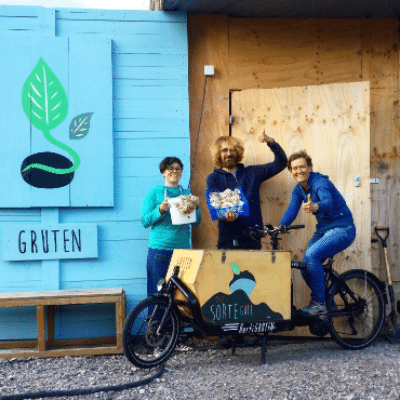Bundesverband GebäudeGrün e.V. (BuGG)
The Bundesverband GebäudeGrün e.V. (BuGG) is the well-established center of knowhow and information of on Green Roof, Façade Greening and Interior Greening topics and technology in Germany.
More than 340 members belong to the BuGG. These include manufacturers, suppliers and distributors active in roof, façade and interior greening, as well as architects and landscape architects, cities and municipalities, universities and institutes, as well as private individuals and students.
Roofs and façades are very important parts of the building. Therefore, we place particular importance on high-quality greening systems, professional application and maintenance and compliance with standards.
Bundesverband GebäudeGrün e.V. (BuGG) is one of the NGOs of EdiCitNet and the expert for building greening. This includes technical and practical knowledge of all aspects which are connected with Green Roofs and Green Façades. In EdiCitNet BuGG will share its knowledge and guide the other participants in installing Green Roofs and Green Façades for urban farming.
Official Website
Hidrolab d.o.o.
Hidrolab d.o.o. was established in 2009. The basic mission of the company is to provide expert engineering services for designing and consulting in the field of water, drinking water, wastewater and irrigation management, enriched by years of experience and continuous improvement of knowledge.
With state-of-the-art knowledge we connect technical, legal and economic aspects of the complex area of the public utility infrastructure and water management. The company is specialised in storm water, wastewater and drinking water management modelling, with a special emphasis on sustainable use and management and risk prevention.
Proprietary and open source CAD and GIS software is being used to develop and manage complex projects. All the activities are supported by spatial databases with real-time data acquisition and analysis.
We have participated in national and international projects funded within FP6, FP7, Cohesion founds and IPA Adriatic Cross-border Cooperation Program.
With our expert knowledge we are actively participating in the development of a comprehensive web-based EdiCitNet toolbox. The company is supporting the transition of the Follower City (municipality) Šempeter-Vrtojba to edible cities by exploiting, utilizing and adapting the experiences from front-runner cities and by implementing a high-benefit nature-based edible city solutions.
We are „Demonstrating innovative nature-based solutions in cities – Nature-based solutions for inclusive urban regeneration” and address societal challenges such as mass urbanization, social inequality and climate change in cities.
Official Website
mundraub.org
mundraub.org is an online platform for all who want to discover local fruits, nuts and herbs in public spaces and help shape the edible landscape worldwide.
More than 70.000 users share POIs, set up planting and harvesting events and share information on everything fruit-related in local groups.
By developing mundraub regions and/or edible districts, mundraub combined the digital aspect with real-life experiences – bicycle tours, harvesting & planting events. This involves preparation, organisation, execution and follow-up activities.
As a social enterprise with an array of business models, mundraub supports the project with its expertise in the field of business model developing and market uptake.
A central part of mundraub is the mundraub map, a mapping tool already serving as an Edible City Solution itself. Our almost ten year knowledge in collecting and visualizing data will aid in creating and visualizing the Edible City Network.
Official Website
NABOLAGSHAGER
NABOLAGSHAGER is an Oslo-based social enterprise and consultancy kickstarting a transition to a greener and more just society.
Our goal is to promote a shift to sustainability through entrepreneurship and knowledge exchanges. Through local initiatives and international collaborations, we co-create multifunctional bottom-up solutions to urban challenges, such as facilitating green job opportunities for youth, creating rooftop gardens, integrating vulnerable groups, and increasing urban biodiversity.
Key local projects we have initiated include an award-winning rooftop farm, an entrepreneurship program where green jobs and circular economy are co-explored and co-created with local minority youth, and various community gardens and biodiversity-enhancing in public space.
Internationally, we collaborate with partners in academia, business and the public sector across Europe on projects related to urban farming, placemaking, entrepreneurship and the circular economy.
Having extensive experience with the practitioner perspective of edible city solutions, Nabolagshager bridges knowhow from academia and hands-on experience directly from the hands of urban changemakers across Europe.
Locally we work with both the public and private sector to ensure that existing practices and pilot projects move into the mainstream.
To encourage the spreading of good ideas and working solutions, we organize seminars, workshops, guided tours and lectures on timely topics, and host student projects from different faculties and backgrounds. We also use social media extensively as a platform for inspiration for edible city solutions.
Official Website
Nolde & Partner
Nolde & Partner for innovative water concepts look back on more than 25 years of expertise in the field of sustainable water and wastewater management.
We are specialised in the planning, design and R&D of decentralised wastewater recycling systems, in combination with heat recovery from wastewater in addition to decentralised rainwater management solutions.
For us, wastewater is a source of water, energy and nutrients and therefore an essential component of any Edible City Solution (ECS).
The long-standing experience and research results from the “Waterhouse” will provide quantifiable evidence with regard to the ecological, social and economical impacts of such innovations on the urban environment and will contribute to an efficient water resources management and increased water reuse with the active involvement of stakeholders and end users.
Another challenge would be to look for efficient contracting models to professionally operate and maintain these innovative systems.
The so-called “Waterhouse” in the centre of Berlin is a lighthouse project that demonstrates innovative and sustainable urban water management solutions at a decentralised, local level.
It incorporates household wastewater recycling and reuse in addition to onsite rainwater management.
The Roof Water-Farm project further explores the treated wastewater to produce food (aquaponics and hydroponics) and liquid fertilizer, in addition to the non-potable water reuse in buildings (toilet flushing, irrigation).
The Waterhouse is suited to demonstrating innovative water systems and services for efficient and sustainable water reuse in the city. It improves public awareness and acceptance for resource recycling and acts as a living laboratory for education and research and is frequently visited by researchers, experts and students from all over the world.
Official Website
Royal Melbourne Institute of Technology Europe (RMIT)
The Royal Melbourne Institute of Technology Europe (RMIT) leads Work Package 1: Urban Governance and Network Infrastructure. RMIT is responsible for developing a cross-institutional governance model that will facilitate mainstreaming Edible City Solutions (ECS) into institutional, regulatory and decision-making frameworks at the municipal scale. Key tasks include supporting the City Teams, organising the Annual City Teams Meeting and Annual Awards events, supporting active city stakeholder participation and creating a network for sharing information among cities.
RMIT University is a global university of technology, design and enterprise. Founded in 1887, it has an international reputation for excellence in education, research and engagement meeting both needs of industry and the community. It is among the world’s top 100 universities in Engineering, Architecture and the Built Environment. RMIT is truly international with campuses in Melbourne and Vietnam, a centre in Spain, and offers programs through partners in Singapore, Hong Kong, China, Indonesia, Sri Lanka, Belgium and Germany. RMIT University has 83,000 students, including more than 12,000 at postgraduate levels. It undertakes large and multidisciplinary research projects and provides transformational student experiences with industry, government, university and community partners around the world. RMIT’s programs are global in focus and practical in application, and cover many of the issues of most vital and pressing practical concern to global cities, emerging and advanced economies and the global environment. RMIT Europe located in Barcelona, Spain, is the European hub of RMIT focused on extending the university’s global reach across research, industry and student mobility. With this aim, it advances RMIT’s research agenda in Europe, matches RMIT’s research strengths and priorities with European funding and collaboration opportunities, and fosters global mobility for RMIT students. RMIT University’s Centre for Urban Research (CUR) provides a supportive, strongly networked and well-resourced research environment. CUR’s establishment in 2012 indicated RMIT’s commitment to innovative, cross-disciplinary urban research.
Official website
Gruten AS
Click on the image to go the video
Gruten is a Oslo based business giving coffee waste new meaning & purpose. We make products containing coffee grounds (soaps and body scrubs) and run courses and workshops to raise awareness and build practical knowledge. The autumn of 2018 we established an urban mushhroom farm, the first of its kind in Norway. There we grow oyster mushroom on coffee waste. Which we sell to restaurants and private customers through the service called Dagens (https://dagensmat.no/) and the Reko network (https://www.facebook.com/rekonorge/).
We are engaged in a project at the moment at Linderud Gård in Oslo where Edible Cities also is present (through Oslo Kommune i believe, Stephanie Degenhardt). There we are building mushroom beds with the local cmmunity and looking at how our end substrate can be of use in growing. We have previously registered through the network and feel the work we do has relevance for what Edible Cities stands for and does.
We grow food in the city/urban area. And that on reused materials and resources. We produce oyster mushrooms, a very healthy and nutritous mushroom. Which we see increased interest for as people want to healthier and have a less meat based diet. We run courses and workshops on the theme of using coffee grounds and have 5-6 years of experience in this field.
We have a good connection with many of the food/growing initiatives in Oslo. We sell mushrooms through Dagensmat and Reko, we are involved with projects at Linderud gård (with a community supported agriculture scheme), we have cooperated with the organization Hagecrew at Vollebekk fabrikker (they have used our end substrate to build vegetable beds) and we give + sell our end substrate to growers in Oslo/surrounding area, we have contact with Nabolagshager, and we have been funded by Spirende Oslo two times (for establishing the mushroom farm and for project at Linderud gård). We also have good relations to the mushroom association around Norway and in Oslo.
Some of our main achievements are starting up first business in Norway focusing on the use of coffee grounds. ; Establishing first urban farm in Norway growing oyster mushrooms on coffee waste.; Educating and inspiring thousands of Norwegian to use coffee grounds at home for gardening, skin care and to grow oyster mushrooms.
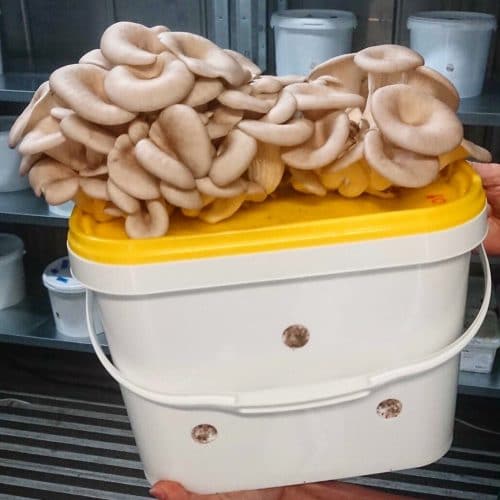
A crucial point in our process was the earthworm who got me keen on finding out about the possibility of using coffee grounds. I build a worm compost bin 7-8 years ago and started feeding the worms quite a bit of coffee grounds. The worm got energy from it (still some caffeine left) and produced amazing compost. Thereafter i found out that coffee grounds can be used to grow oyster mushrooms and much more. Then i was hoooked.
Official Website
Address:
Bentsebrugata 11
0476 Oslo
Norwegen
Andernach.net
Andernach.net is an urban subsidiary, which is responsible for tourism, city marketing and business development. The Company is counterpart in all questions concerning the marketing of the city of Andernach. In the business segment of city marketing and tourism Andernach.net is for example responsible for making the city more attractive as a tourist-destination or for the local retail.
In co-operation with the urban administration as well as local associations Andernach.net is responsible for the conception and realization of various city festivals and events.
We offer packed tours and guided city tours to our guests, and the team of our tourist-information will assist in all the questions around the travel planning. One can reach information about the historic old town of Andernach, Andernach Geyser, the edible city, cultural events, hiking or bicycle tours. Furthermore, guests can use our free room service.
The aim is to be of help and make the stay in Andernach a pleasant one.
In the segment of business development, you are welcome as an entrepreneur or start-up. Start-ups can also use our consulting service.
Tourists which visit the city of Andernach are very interested in the project of the “edible city” for which reason we are the intersection to transport also the activities of the project of “edible cities Network” to our guests and to support the network with our expert knowledge in question of marketing.
Official Website
Address:
Konrad-Adenauer-Allee 40
56626 Andernach
Germany
Maltaflor
The company Maltaflor Europa GmbH is a fertilizer manufacturer based on the development of an entirely new bionic fertilizing technology that uses special plant hormones and growth compounds extracted from malt sprouts (malt-culms).
Maltaflor has become one of the leading fertilizer manufacturers in Germany by having invented products such as Symbio® which can recreate natural habitat in any soil environment including toxic landfills, especially when the microbial is not in balance.
All fertilizers made by Maltaflor are engineered to address all aspects of a healthy cultivation, from plantations to urban greening while giving priority to preserve water quality, chemical exposure and use of natural resources.
Maltaflor has supported the EdiCitNet program with knowledge & experience in soil management technologies and continue to support the program with education for students by providing soil analysis facilities.
Address:
Kirchberg 37b
56626 Andernach
Germany
Moestuinman
Moestuinman is a small business owned by Max de Corte. They started with community vegetable gardens and urban farming in general. Nowadays they mainly do (edible) greening of schoolyards projects (development, designing and implementing) and Food Forest and Edible Forest Gardening (development, designing, implementing, maintenance and harvesting). All these projects are done together with a network of other local entrepreneurs.
With 5,5 years of experience in running a market garden run with volunteers in 10 years of activating volunteers Moestuinman has a big social component and involvement.
Moestuinman also calls itself a permaculture entrepreneur which means we work with the following ethics: take care of the planet, take care of the people and share the abundance!
Moestuinman is involved with the Living lab and City Team of Rotterdam and is leading a research of urban farming projects with the goal of setting up a city wide network and/or organization which can support all the projects involved.
Official Website
Address:
Brouwersstraat 34
3061 NG Rotterdam
Netherlands
Degewo
degewo is a leading residential company in Berlin. With around 69,000 owner-occupied apartments and more than 6,000 third-party apartments as well as around 1,300 employees, it is one of the largest and most efficient housing companies in Germany. Their quarters are located in almost all parts of Berlin.
degewo is part of the City Team and supports with their experience in the management of numerous community gardens and insect-friendly and species-rich open spaces in their living quarters.
Official Website
Address:
Postdamer Straße 60
10785 Berlin
Germany
Dida Seeds
I am Karla, a young founder from Germany, living in Berlin. Currently, I am starting my own sustainable business – an online shop for organic seeds, packed in a fully organic and recycled packaging. Sustainability is the base of my business concept and a driving force of motivation to have a positive impact on our environment and social development.
I found out about Edible Cities during a webinar workshop on sustainable business canvas models. ; In my opinion, networks such as this one is are crucial to any kind of organisation – especially while starting. I’d love to be able to collaborate, contribute and learn while growing as a sustainable business and being part of an internationally growing network.
The expertise I am offering is my knowledge and passion for horticulture and social entrepreneurship. Being a native speaker in Croatian, German and Spanish, I am also very much interested in the cultural variety of international collaborations, which is why I studied Cultural Studies and Anthropology in the first place.
As I am just starting to develop my business, I’d be glad to make the Edible cities one of my first ones. Other than that I am involved in rather artistic networks and communities, as I was working as a Gallery Manager in contemporary art gallery.
My core product are organic seeds. Parallel to that, I will be offering a service to health institutions (starting in Berlin): a collaboration with hospitals and therapeutic institutions. ; In order to promote gardening as a form of therapy, already acknowledged in different parts of the world, I will be offering the service of sowing seeds with patients and their doctors / therapists as a means of therapeutic exercise, supporting their individual healing processes.
Address:
Auguststraße 63
10117 Berlin
Germany
Insect2eat
Food made from insect flour, or insect food for short, a sustainable, alternative source of protein with many advantages for healthy eating and our environment. Insec2Eat wants to face this challenge and make insect food known. Many people in Germany shy away from unknown diets, especially when it comes to edible insects. The reasons for this are mostly poor education and natural disgust. Precisely because of this sensitive product, Insec2Eat has set itself the task of putting taste, sustainability and quality first. The breeding of edible insects is inherently sustainable. For this very reason, Insec2Eat continues there and only produces in Germany and only uses biodegradable packaging. To give the products a unique taste, our chilli rillis, crispbread and crackers are handmade according to original recipes. These measures are also decisive for the quality of the products.
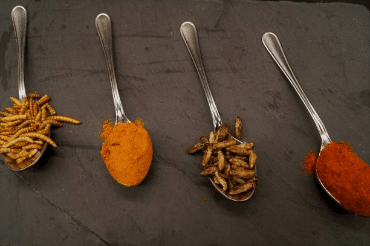
Edible Insects – Insect2eat
If we do not concentrate soon on alternative food concepts that are also sustainable, there is a risk that we will knock ourselves out. Factory farming and monocultures in conventional agriculture will not withstand in the long run. More and more animals that need more and more space, that consume immense resources for their breeding, a no-go.; This is exactly the starting point where I want to go and integrate insect food into people’s menus. Insect food consists partly of insect flour. Insect meal from freeze-dried insects consists of 50-70% protein which stimulates muscle growth through the protein and is also sustainable for the environment, through the resource-saving breeding of insects. Since insects do not need much space for their breeding, they can also be bred in small warehouses in the city.
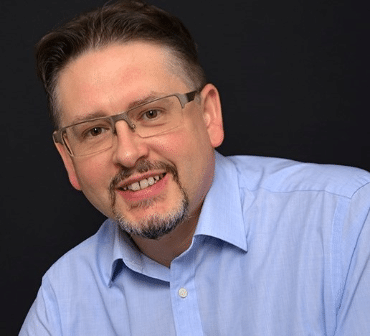
Sandro Tornow – Insec2Eat
7.8 billion people need food, but traditional resources are no longer sufficient. What can we do to avoid hunger while protecting the environment?; Solution; Over 2 billion people worldwide eat insects or insect products. Insects contain between 50-70% proteins, important nutrients such as vitamins B2 & B12, healthy omega-3 fatty acids, and trace elements (iron, zinc, magnesium, potassium, etc.).; -healthy; -rich in essential nutrients and trace elements; -space-saving in breeding; -consume only 1/10 of the resources of conservative animal husbandry; -are bred according to strict HACCP rules; -can be a varied alternative to conventional nutrition; -no pesticides or antibiotics are used for breeding, only organic feed.
Official Website
Address:
Wriezener Str. 13
13055 Berlin
Germany
Marktschwärmer

Marktschwärmer creates a direct connection between producers and consumers of a region: Customers order comfortably in the Online shop in one of the 17 “Schwärmereien” in Berlin on www.marktschwaermer.de.
On one day in the week they fetch their fresh purchases then at a central place in their neighborhood and meet there the people, who produce their meal.
The movement already has more than 80,000 members, almost 1,000 regional producers, more than 50 hosts of local markets and a small team of dedicated Marktschwärmer in Berlin and Paris who connect these people.
In over 50 local “Schwärmereien”, many thousands of people shop differently. With each purchase they directly support almost 1,000 small and artisanal producers in their region.
Uncle Trolls Pantry
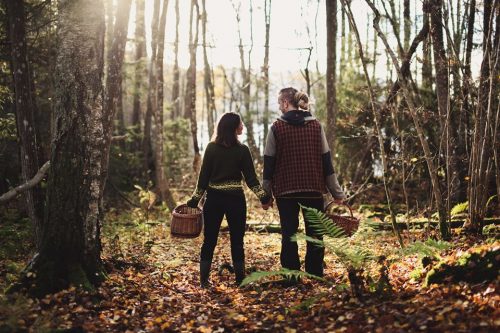
We are: Uncle Trolls Pantry; We forage mushrooms and herbs from Norwegian forests. Most of what we forage we turn into products, and some we sell fresh to restaurants and end customers.; We also make courses to teach people about edible mushrooms and plants, and how to prepare them.
Our relation to ECS is given by a project in Linderud Gård Nærmiljøhage where we are experimenting with growing herbs, which is one of our expertise areas, along with knowledge about mushrooms.
Some of our achievements are becoming certified mushroom controllers in Norway; making a range of tasty products from what we forage in the local forests and arranging our first courses about foraging and preparing the catch.
It began as a hobby and with making products for family and friends. One step led to another and we began learning more about foraging from nature. The things we foraged became products like sauces, spices, pickles, pestos, chutneys and syrups. With small steps we experiment and find better and better recipes, and expand our markets. Though foraging is extremely time consuming and dependant weather conditions, experience and luck, it is also a very rewarding work. The forest is the best employer! (Even though the hourly pay is quite low…); Now after 4 years we deliver fresh mushrooms to some restaurants, and we have a range of different products within our brand.; We also started making courses and hope to expand that part of the business as it is a bit easier to plan though it is also dependant on the season.
Our core products are a range of sauces, spices, pickles, pestos, chutneys and syrups that we manufacture from foraged, grown and surplus food. We also provide educational services through courses and guided tours.
Address:
Ole Reistadsvei 9c
1068, Oslo
Norway
AnkerBuch
AnkerBuch is located in the heart of the “Essbaren Stadt Andernach”. The company has been pursuing a holistic digital strategy since 2016. A core element of this strategy is AnkerBuch-Verlag, with a focus on regionality, sustainability and biodiversity.
In autumn 2019 the book project “Moss and the bee tendrils” was started. The author Stefan Gemmel and eight teenagers from the Kurfürst-Salentin-Gymnasium Andernach wanted to write a book together. The idea was developed by Stefan Gemmel and Ralf Anker to bring children and young people closer to the joy of reading and writing. In cooperation with the head of the Real-Labor in Andernach, only the basic idea, that it should be history about wild bee protection, was developed.
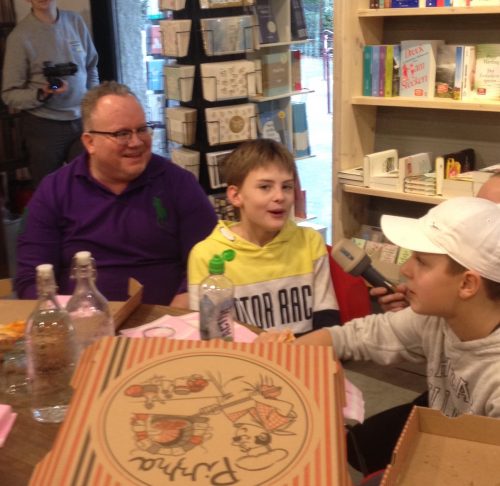
AnkerBuch has always tried to orient itself thematically in its range of products to the theme “Edible City” and is also part of the Börsenverein des Deutschen Buchhandels (The German Publishers & Booksellers Association).
The highlights of this project were the enthusiasm of the young people for the topic “book” and their commitment to the protection of wild bees. Carried by the energy and enthusiasm of the young people, the project got off to a furious start. But then two events brought the project to a standstill. The corona pandemic and the loss of the head of the Real Laboratory in Andernach, however, the joint efforts of author, publisher and accompanying teacher ultimately made it possible for the book of Stefan Gemmel „Moos und die Bienenranger“ to be published in autumn 2020.
Official Website
ralf [dot] anker [at] anker-Buch [dot] de
Address:
Obere Wallstraße 10
56626 Andernach
Germany
Prinzessinnengarten /Nomadisch Grün gGmbH
Prinzessinnengarten is a social-ecological urban agriculture in Berlin. Our goal is to set low-threshold opportunities for environmental education and participation, to develop urban gardens as places for community learning about biodiversity, climate adaption an sustainable living in urban spaces. Therefore we transform urban spaces into publicly accessible green spaces such as community gardens for the neighborhood, environmental education spaces for local institutions and urban vegetable fields for the ecological production of vegetables. Our team hosts regular community gardening sessions to enable public citizens to participate in the cultivation of plants, learn about the principles of regenerative agriculture and the value of good food.
Address:
Hermannstr. 99-105
12051 Berlin
Ackerpause
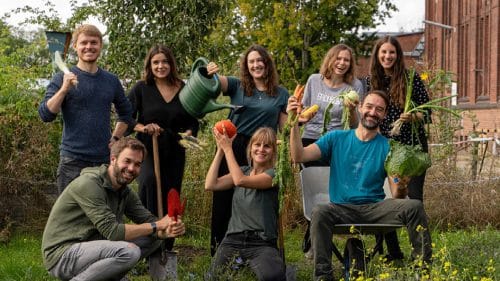
Ackerpause creates vegetable experiences and initiates multylayerd gardening projects. We have three different products: Urban Farming, Office Gardening and Home Office Gardening. We help companies by providing them all including service packages to help employees and tenants grow their own food and transfer know-how about food production and a healthy and sustainble lifestyle. Beside the goal to help people to find their own „Work-Plant-Balance“ in the Office or Home Office, we also realize community garden projects in neighborhoods. Our aim is to realize environmental education projects which concentrate on practical gardening experiences. By providing various workshops, personal support as well as digital support with our Ackerpause-App, we accompany the participants and plants to help them flourish. Our roots belong to Ackerdemia e.V. which developes and realizes innovative enviornmental education concepts.
We provide holistic concepts to bring society closer to a more sustainable life with consciousness about our food systems. We initiate projects and support people to transform the world and make it more green and edible. We create a unique world of experiences around nature and food.
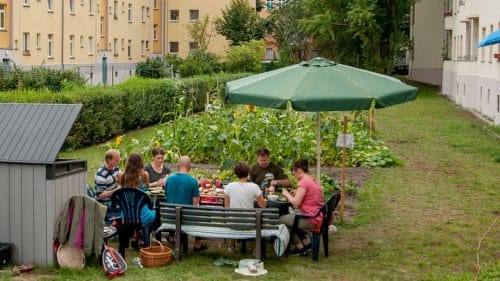
Official Website
kontakt [at] ackerpause [dot] de
Address:
Bessemerstr 2-14 Haus E
12103 Berlin
Germany
















